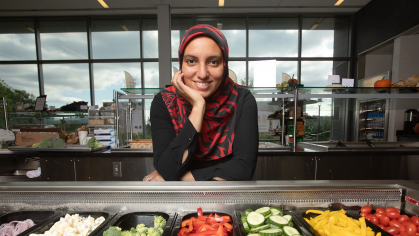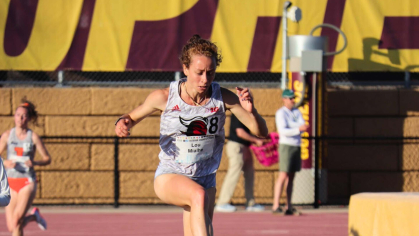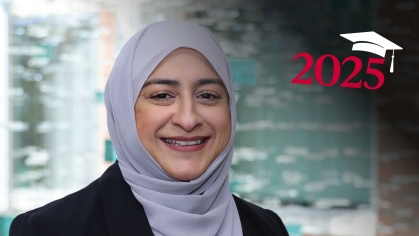
Meet Ruoshi Ping, a Rutgers School of Public Health MS graduate!
Ruoshi Ping will be receiving his Master of Science (MS) in Biostatistics from the Rutgers School of Public Health.
As a member of the Class of 2025, Ruoshi has approached his studies with a strong passion for advancing health equity through data-driven solutions. His academic journey has been defined by a commitment to using biostatistics to illuminate and address complex public health challenges.
We sat down with Ruoshi to hear more about his public health journey, his passions and goals, and what’s next.
---
What inspired you to pursue public health, and how has your time at Rutgers School of Public Health shaped your journey?
The COVID-19 pandemic was a turning point that inspired me to pursue public health—it revealed how deeply health systems impact every aspect of society. My time at Rutgers School of Public Health has been transformative, providing me with both theoretical knowledge and practical skills. Engaging with diverse faculty and peers has broadened my perspective on global health challenges. This journey has solidified my commitment to advancing health equity and serving communities in need.
What has been the most rewarding or transformative experience during your time at Rutgers?
The course Statistical Learning for Biomedical Studies has been the most rewarding experience for me. Before taking this course, I was very curious about AI and machine learning and how they could be applied in public health and clinical areas. During this course, I learned a lot of knowledge, including support vector machines and random forests. Under the supervision of Dr. Jaya Satagopan, I conducted a research project in predicting breast cancer subtypes using statistical learning methods.
What advice would you give to current and future public health students?
My biggest advice to current and future public health students is to plan ahead and explore your interests early. Public health is a broad field—take time to discover what truly excites you, whether it's epidemiology, policy, or health education. Seek out internships, research opportunities, and mentors as soon as possible. The earlier you start, the more meaningful experiences you’ll gain to shape your career path.
What’s next after graduation, and how do you hope to make an impact in public health?
After graduation, I plan to pursue a PhD in biostatistics or statistics to deepen my research skills and focus on solving complex health challenges. I'm particularly interested in using data and evidence-based approaches to address health disparities and improve population health outcomes. Through research, teaching, and collaboration, I hope to contribute to shaping public health policies that promote equity and long-term impact.


